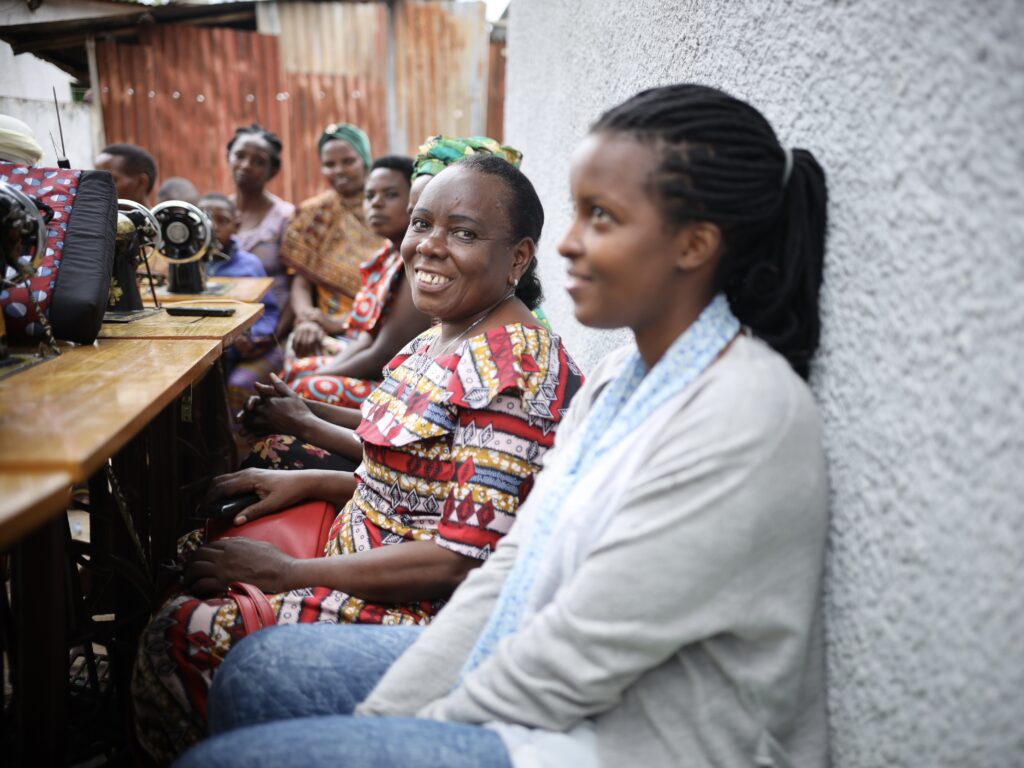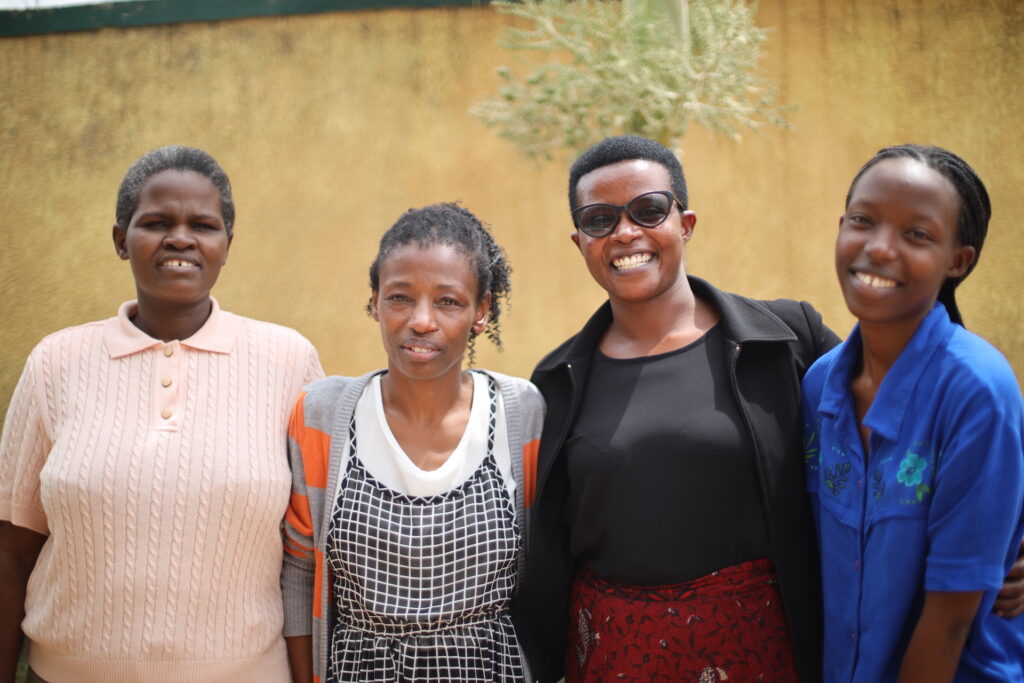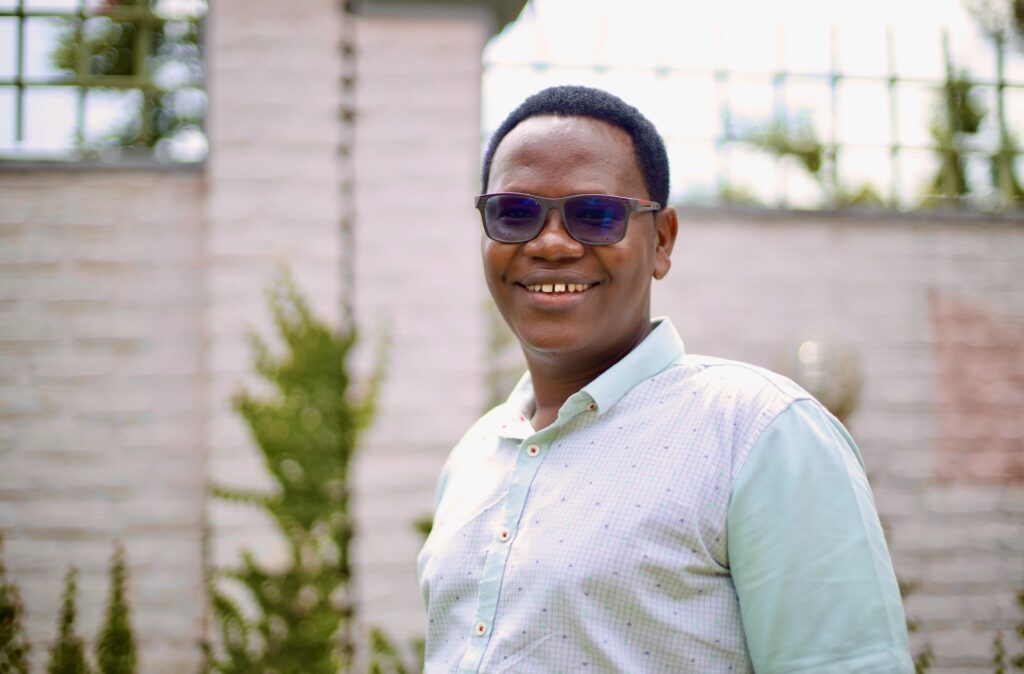The Ripples of Resourcing Rwanda’s Disability Rights Movement
By Jean-Pierre Sibomana, DRF Program Officer for Rwanda

The Disability Rights Fund (DRF) and the Disability Rights Advocacy Fund (DRAF) began grantmaking in Rwanda in 2013. Over the years, we have awarded 105 grants, giving over $2 million to Rwandan organizations of persons with disabilities (OPDs), including 8 Special Opportunity Grants to advance the government’s Global Disability Summit (GDS) commitments. Our grantmaking in Rwanda is also aligned with our Gender Guidelines Implementation Plan, recognizing that the inclusion of women and girls with disabilities and diverse SOGIESC (Sexual Orientation, Gender Identity and Expression, and Sexual Characteristics) is key to ensure no one is left behind.
As we bear witness to the OPD movement growing and diversifying, here are the key highlights of DRF’s giving, lessons learned, and the impact of consistent investments to resource Rwanda’s grassroots disability rights movement.
Diversity is a Step Towards Equity
Over the past nine years, DRF’s grantmaking has contributed to expanding, diversifying, and strengthening the disability movement in Rwanda. Grants have been made to a diversity of marginalized groups of persons with disabilities, including organizations of refugees with disabilities, youth with disabilities, persons with psychosocial disabilities, persons with Deafblindness, women with disabilities, persons with albinism, Indigenous Peoples with disabilities, to name a few. A number of these groups also received support to work with the two national umbrellas, National Union of Disabilities’ Organizations of Rwanda (NUDOR) and the Umbrella of Organizations of Persons with Disabilities in the Fight Against HIV/AIDS and Health Promotion(UPHLS) to secure fiscal sponsorship and build their capacities to receive independent grants. Currently, DRF is funding 15 grantees with diverse disabilities that are driving advocacy in Rwanda.
Technical Assistance Builds Capacities
Over the past four years, DRF has provided financial and technical support to Rwandan OPDs, such as to draft and submit the Alternative Report to the UNCRPD Committee on Rwanda’s second review, including a specific report on Equal Recognition Before the Law. We are pleased to see that OPDs are increasing the visibility of issues facing persons with disabilities in Rwanda. OPDs, including NUDOR, have continued to deepen their skills to advance rights and are engaging in advocacy at the national level. Marginalized groups and emergent OPDs are increasingly partnering with larger OPDs and mainstream civil society organizations, such as Human Rights First Rwanda Association, Legal Aid Forum, and Haguruka. At the national level, NUDOR is also engaging with civil society mechanisms for implementing the Sustainable Development Goals (SDGs), advancing the implementation of Rwanda’s GDS18 and GDS22 commitments, while proposing substantial changes to align national development plans and policies with the CRPD
Rwanda’s OPD Movement is Delivering Wins
In 2021, the Government of Rwanda adopted and approved a National Disability Policy. Thanks to the advocacy of DRF grantees, the government also signed and ratified the Protocol to the African Charter on Human and Peoples’ Rights on the Rights of Persons with Disabilities and the Marrakesh Treaty. DRF can also attest to the diversification of the movement with the rising voices of women with disabilities. The National Policy of Persons with Disabilities builds on government’s commitment to empower, support, and promote the inclusion of persons with disabilities in the country. DRF grantees are also raising awareness on the implementation of this policy and have worked to mainstream disability in COVID-19 responses to ensure that planning, budgeting, and recovery efforts are CRPD compliant.
Grantee Convenings Build Unity and a Forward Vision
In November 2023, DRF and NUDOR co-hosted a grantee convening to celebrate the achievements of the implementation of the CRPD and other policies and laws that promote and protect disability rights. Fifteen OPDs gathered to dialogue on strengthening OPD skills to monitor and report on the implementation of the CRPD, Universal Periodic Review recommendations, and implementation of GDS commitments. Grantees made key recommendations for inclusive education, health, accessibility, advocacy, and more!

The Leadership of Women with Disabilities is Key for Inclusion
Historically, Rwanda’s disability rights movement has been dominated by males. In recent years, women and girls with disabilities are creating their organizations and raising their voices to highlight their solutions, lived experiences, and unique needs. With DRF’s support, the Rwandan Organization of Women with Disabilities (UNABU) developed an alliance with Haguruka—a national women’s rights NGO advocating to stop gender-based violence (GBV) and offering services, such as legal assistance, psychosocial support, and referrals for survivors. Other groups, like Hope for Single Mothers with Disabilities (HSMD) and Organization of Women for Health Promotion and Development have engaged in various advocacy activities to shift ableist attitudes and stop discrimination against women and girls with disabilities. DRF grantee HSMD, a new OPD led by women with disabilities, has trained single mothers with disabilities on CRPD rights, leading to the creation of self-help groups in three districts.
There is No Inclusion Without Accessibility
DRF grantees are explicitly demanding accessibility at hospitals and health centers to accommodate women and girls of short stature. “Health rights for persons with short stature are a must. To eradicate stigma and psychological abuse, health centers and hospitals must be equipped with accessible materials to accommodate all persons with disabilities,” said Donathile, executive director of the Rwanda Union for the Blind. Grantees are also advocating for access to accessible information on sexual and reproductive healthcare without discrimination. “We must ensure that women and girls with disabilities are protected from sexual and gender-based violence and are provided with psychosocial support,” said Rose Mutesi from NOUSPR.

As the program officer for Rwanda, I am proud of the strides made by the disability rights movement. And we have a long way to go to achieve inclusion! Historically marginalized groups, like Indigenous Peoples with disabilities, must be included in the disability rights movement. “Until 2017, none of the donors or well-wishers worked to include Historically Marginalised People in their agenda or strategic plan. Thanks to the Disability Rights Fund, our first funder, we can advocate for our cause,” said Richard Ntakirutimana, founder of First People Disability Organization.
2023 is here, and we are rolling up our sleeves and getting to work! There are many possibilities and opportunities to seize for the Rwandan OPD movement. Together, we are building unity and driving the agenda of persons with disabilities. Because, there’s ‘Nothing About Us Without Us!’